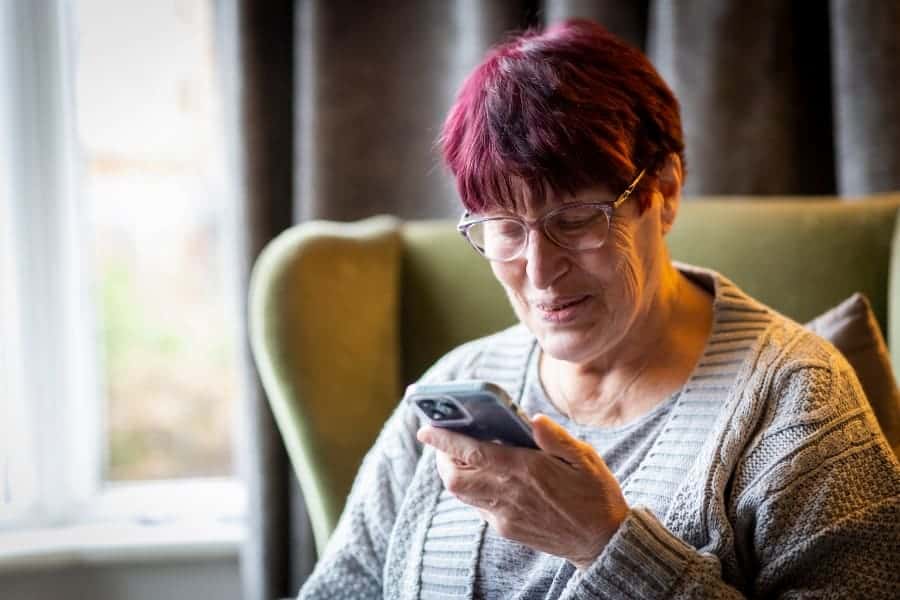OTs working in community settings with digitally active older adults at home invited to complete survey

A survey is seeking the views of occupational therapists (OTs) working in community-based or adult social care settings with older people who are already using a smartphone or other internet-linked technology at home.
The research, entitled ‘Digital Clinical Safety for Older People accessing Adult Social Care Occupational Therapy Services: A survey of occupational therapists’ work with Artificial Intelligence/Internet of Things technology in community contexts’, is being carried out by Alicia Ridout.
Alicia is a PhD student at York St John University and a registered occupational therapist. Alicia’s work is supervised by Professor Alison Laver-Fawcett, Professor in Occupational Therapy at York St John University.
The research explores the issues affecting older peoples’ digital safety using artificial intelligence (AI) and internet linked devices/sensors (IoT) or smart products at home.
It comes in the context that COVID-19 and the cost-of-living crisis have added many more complexities to people’s lives. The pandemic also triggered a huge increase in the use of complex technology. In addition to this, occupational therapy services and carers are facing increasing demand while the UK experiences an ageing population.
Technology used by OTs often has AI embedded in its software. When devices are connected via IoT, it can involve extraordinarily complex, self-learning software making predictions and triggering, for example, a service to respond to a person’s wellbeing needs. If an older person is referred or self-refers to adult social care occupational therapy services, they will potentially have the opportunity to use these technologies.
Examples might be smart/AI technology and systems to help manage health, heating, or security (environment); using devices such as an Alexa and other sensors; or information underpinned by Large Language Models such as ChatGTP/Bart.
However, it can be complicated, due to the way AI and IoT are created, to work out if they are safe for individuals, the research stresses.
This research looks at what can be done to make conversations easier, considering the risks and benefits such advanced technology might involve.
Now, Alicia is encouraging HCPC-registered OTs in England to submit their views to her survey about the challenges older people who already use smart technology are facing now and future patient safety issues.
Ideally, survey respondents will be:
- An OT, working with older adults in community settings, where older adults access social care services now or may in the future, and
- Working with older people already using personal smart/AI-based software and linked devices such as a mobile phone or smart assistant (e.g., Amazon Alexa) and/or AI informed clinical decisions and predictions day to day at home that influence care delivery (such as remote monitoring); and
- Assessing older people considering/likely to be referred to adult social care services who are willing to use this technology, who do not have significant cognitive impairment
OTs can fill out the survey here.
The survey presents an opportunity to improve digital clinical safety during the referral and assessment phase, improving personalised care and support choices. This is where OTs’ insight would be useful, as adult social care services are still the focus of policy drivers to deploy AI. This research aims to support the profession as it enters this phase of considering it as part of service development.
The survey findings will provide a ‘real world’ baseline for further research. It uses experience-based co-design to create resources, improving digital safety conversations. The goal is to create some best practice tools to be used by older people and OTs in the future.
Most of the questions are multiple choice, and the survey should take around 10-15 minutes to complete. The deadline for completing the survey is the end of November.
For any queries about the research study, contact Alicia via email at Alicia.ridout@yorksj.ac.uk.

